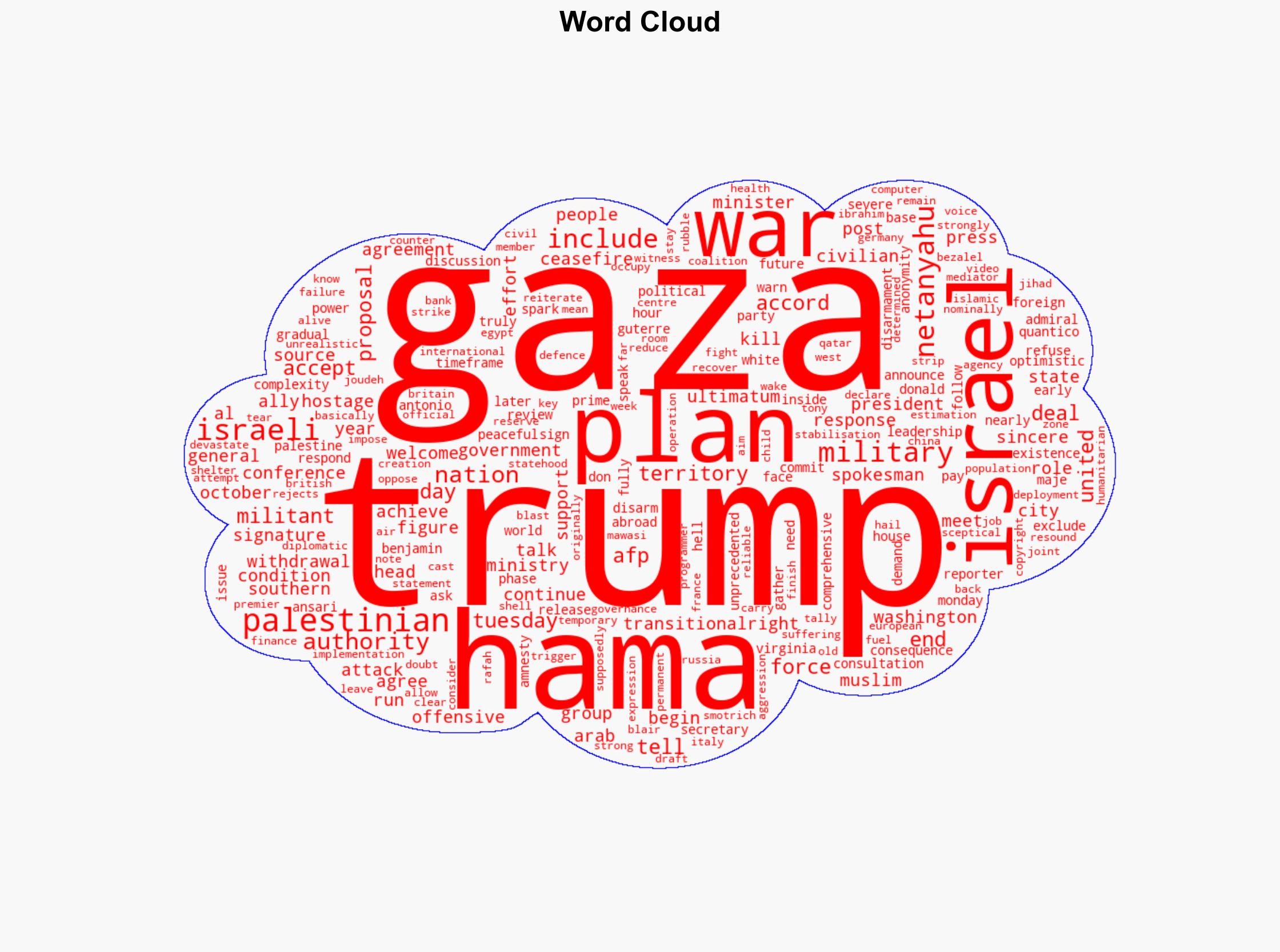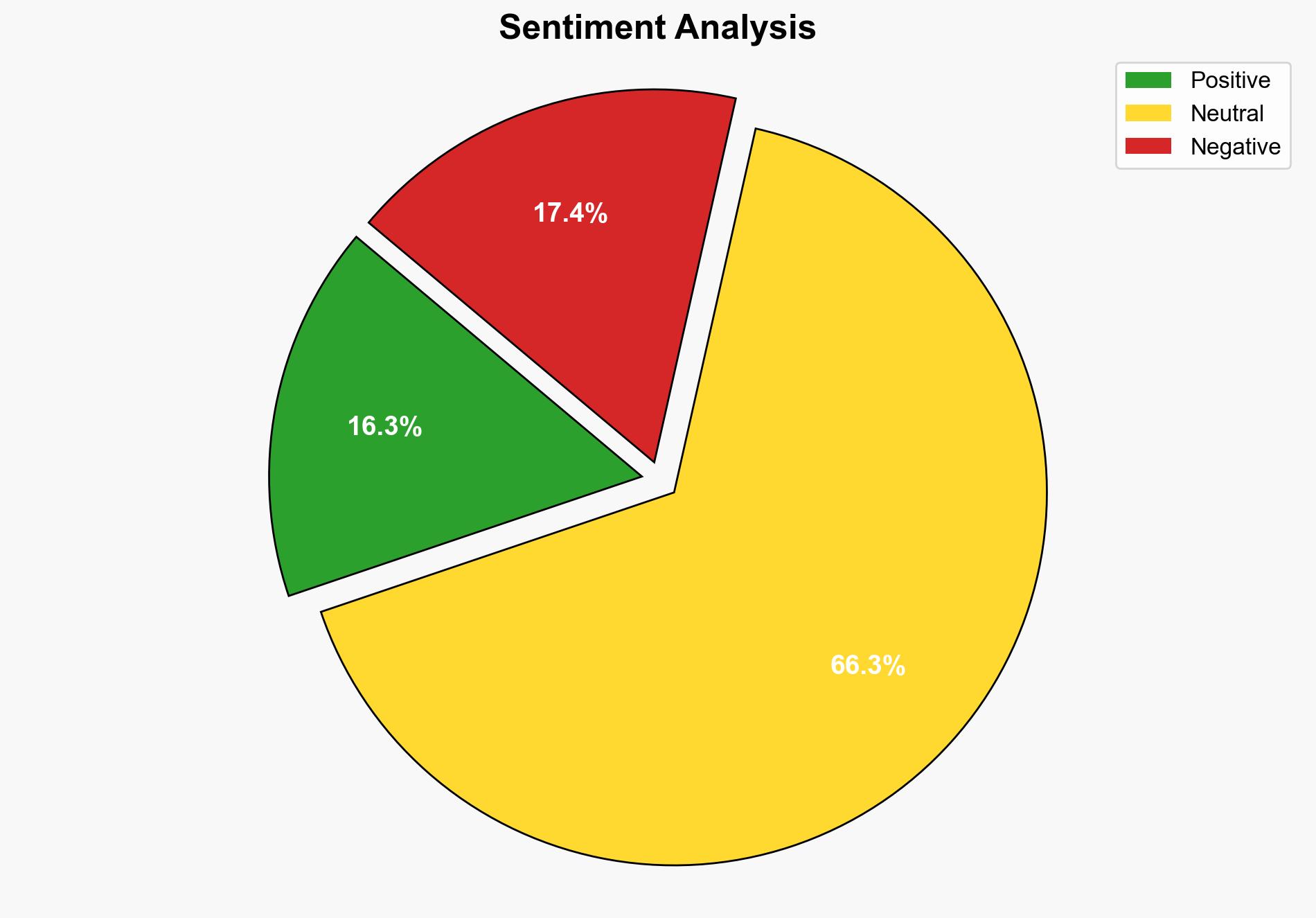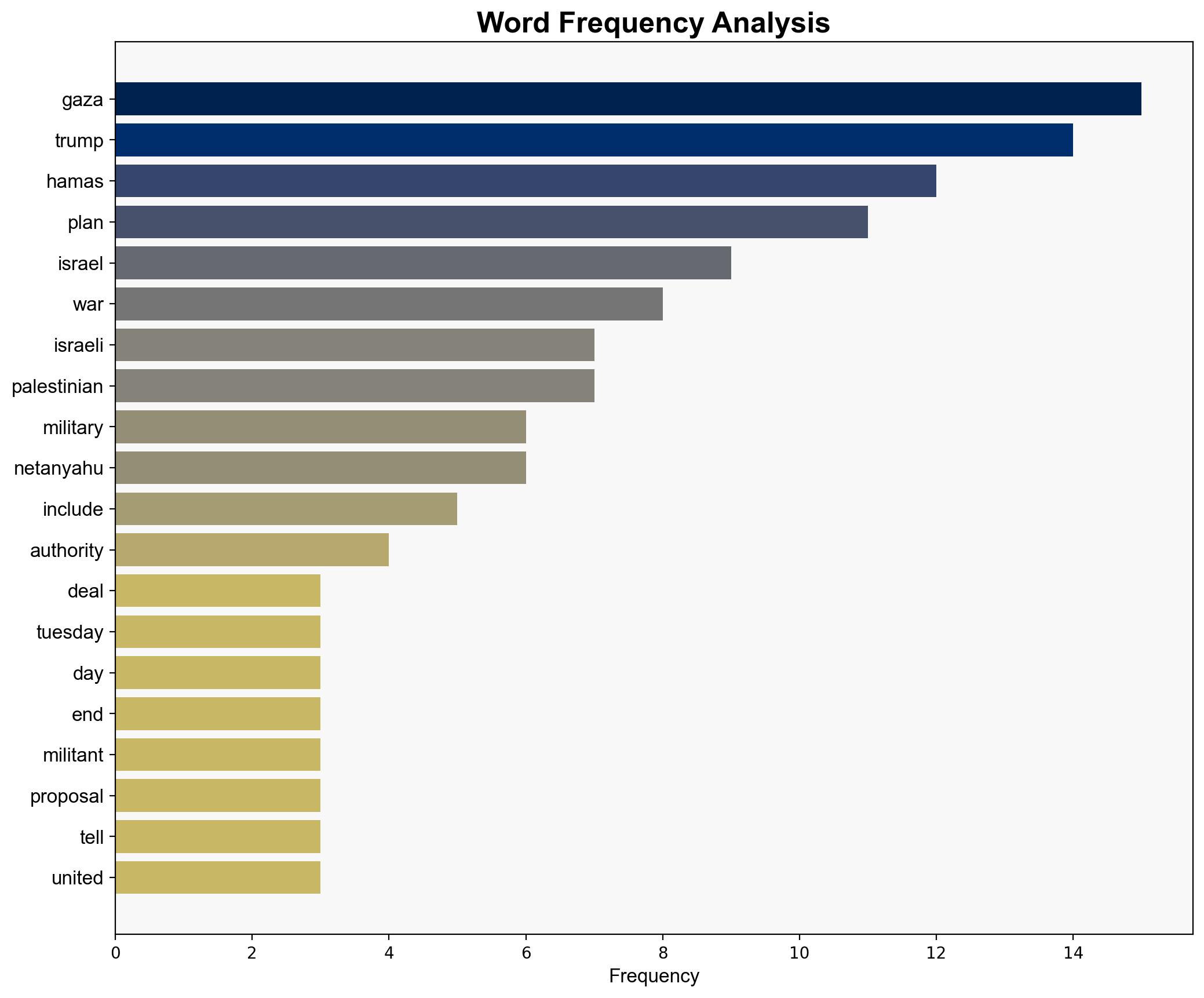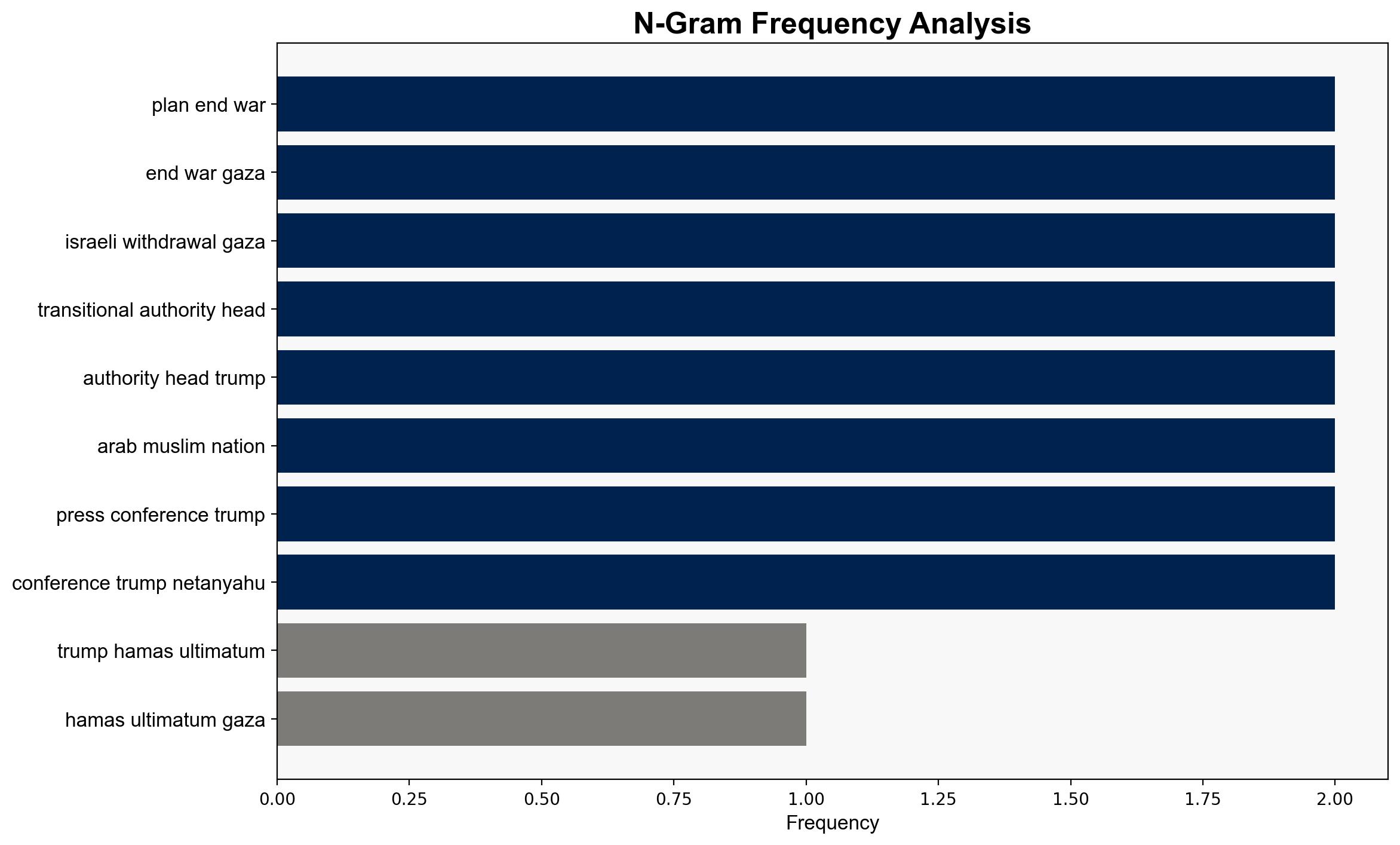Trump Gives Hamas Ultimatum On Gaza Deal – International Business Times
Published on: 2025-09-30
Intelligence Report: Trump Gives Hamas Ultimatum On Gaza Deal – International Business Times
1. BLUF (Bottom Line Up Front)
The analysis suggests that the ultimatum issued by Donald Trump to Hamas regarding the Gaza deal is unlikely to result in a peaceful resolution in the short term. The most supported hypothesis is that Hamas will reject the ultimatum due to its demands for disarmament and exclusion from future governance roles. The confidence level in this assessment is moderate, given the complexity and volatility of the situation. It is recommended to prepare for potential escalation in hostilities and to engage with key regional players to mediate and de-escalate tensions.
2. Competing Hypotheses
Hypothesis 1: Hamas will reject the ultimatum due to its stringent demands, leading to continued conflict in Gaza. This hypothesis is supported by historical resistance from Hamas to disarmament and exclusion from governance, as well as skepticism from regional actors like Egypt and Qatar.
Hypothesis 2: Hamas will accept the ultimatum under international pressure and the promise of phased Israeli withdrawal, leading to a temporary ceasefire. This hypothesis considers the potential influence of international actors and the dire humanitarian situation in Gaza as factors that might compel Hamas to negotiate.
3. Key Assumptions and Red Flags
Assumptions include the belief that Hamas prioritizes governance over military capabilities, and that international pressure can effectively influence Hamas’ decision-making. Red flags include the lack of clear incentives for Hamas to disarm and the potential for misinterpretation of Trump’s intentions by regional actors. The absence of a detailed implementation plan for the transitional authority is a significant blind spot.
4. Implications and Strategic Risks
The rejection of the ultimatum could lead to intensified military operations in Gaza, exacerbating the humanitarian crisis and potentially drawing in regional actors. Economic sanctions or military interventions could destabilize the region further. The acceptance of the ultimatum, while unlikely, could temporarily stabilize the region but may not address underlying tensions, risking future conflicts.
5. Recommendations and Outlook
- Engage with regional allies to prepare for potential escalation and coordinate humanitarian aid efforts.
- Facilitate back-channel communications between Hamas and Israel to explore alternative compromise solutions.
- Scenario Projections:
- Best Case: Hamas accepts the ultimatum, leading to a phased peace process.
- Worst Case: Rejection leads to a full-scale conflict, drawing in regional powers.
- Most Likely: Continued stalemate with sporadic violence and international diplomatic efforts.
6. Key Individuals and Entities
Donald Trump, Benjamin Netanyahu, Bezalel Smotrich, Antonio Guterres, Tony Blair, Ibrahim Joudeh.
7. Thematic Tags
national security threats, counter-terrorism, regional focus, Middle East peace process




